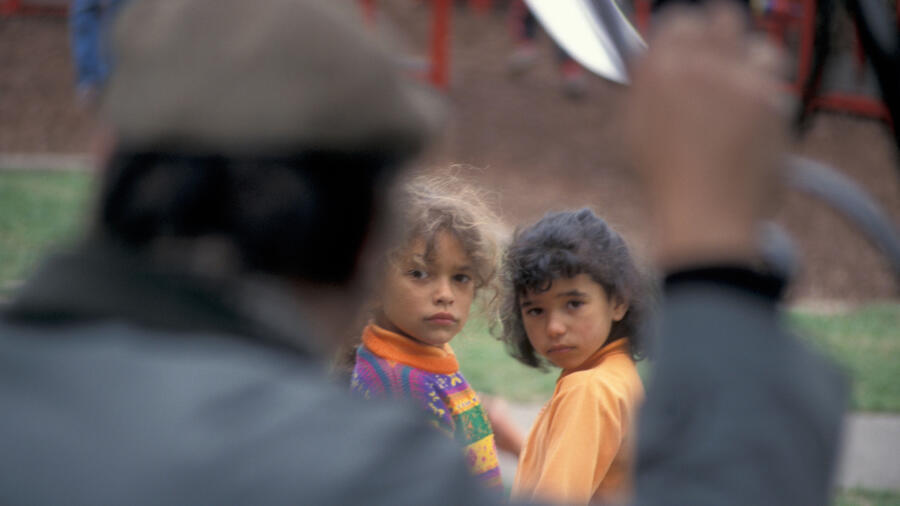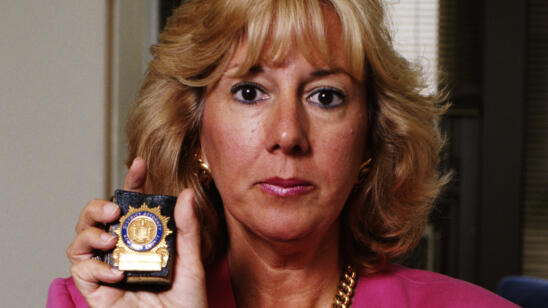It’s the stuff of nightmares for parents—you get a flier in your mailbox that a registered sex offender has moved in next door or down the street or near your child’s school. What recourse do you have? How can you protect your family?
We sought advice from two experts: Linda Fairstein, former chief of the Sex Crimes Prosecution Unit in the Manhattan District Attorney’s Office and bestselling crime writer, and forensic psychologist Cynthia Calkins, PhD, an associate professor of psychology at John Jay College of Criminal Justice, and co-author of Protecting Your Child from Sexual Abuse: What You Need to Know to Keep Your Kids Safe.
How can I find out if a registered sex offender lives near me?
“Every state has a registry and there are maps that show where [they are]. The laws are designed so that you [can find out if an offender is] in your neighborhood,” Fairstein says. “You may not be able to make him move out from next door, but there are guidelines about how close to a school a predator can be. He may fall into that category, so you could go to the local police and complain.”
State registries may have links to community-specific resources and organizations. For example, the New Jersey State Police Offenderwatch gives users the option of signing up their own address for alerts whenever a new offender registers within a mile. There is no limit to the number of addresses you can register—and the NJSP suggests registering addresses for your work, home, school, daycare, local parks or playing fields, etc.
There is also a national database of sex offenders, the National Sex Offender Public Website (NSOPW) from the U.S. Department of Justice. You can search by name, state or zip code. You can even plug in an address and find out if there are offenders within a certain radius (but only for those states that provide address info to the NSOPW).
Can a convicted sex offender live near a school or park?
“You would need to find out if your state or local jurisdiction has residence restrictions that prohibit sex offenders from living near certain child-dense community structures, such as schools, parks, playgrounds or churches in your neighborhood,” says Dr. Calkins. Laws about where sex offenders can live—how far from a school or park, for example—vary by community. The Center for Sex Offender Management has answers to some common questions, as does the nonprofit Stop It Now!
Will I automatically be notified if a registered sex offender moves to my community?
The federal government requires that all states release information to the public on registered sex offenders. Signed into law in 1996 by President Bill Clinton, this is known as “Megan’s Law.” It was inspired by the case of 7-year-old Megan Kanka of New Jersey, who was killed in 1994 by a convicted sex offender neighbor. However, it depends on state law whether law enforcement is required to actively notify communities—via fliers or community notification meetings. Call your local police or sheriff’s office for more information about notification in your area.
Why do they list a sex offender’s crimes on the database?
The reason they include that much detail, says Dr. Calkins, is “presumably so that the community knows what type of risk the offender presents.” says Dr. Calkins.
How long does a convicted sex offender need to be on a registry?
Offenders typically must register within days of release from prison or being placed under supervision. And placement usually lasts ten years. Lifetime registration may be required, especially if someone is designated a “sexual predator,” or has committed a subsequent sexual offense.
What can I tell other people about the information I find out about local sex offenders?
“Information on a public registry is public,” says Dr. Calkins. “There is nothing forbidding you from telling anyone, that I’m aware of.” It is illegal, however, to use this information to harass or discriminate against the offender.
Is there anything I can do to be extra vigilant?
“Looking at the registry and making yourself aware of who lives in your neighborhood is important,” says Dr. Calkins, “though you should remember that 95 percent of new sex crimes are committed by individuals not on a sex-offender registry. Also, more than three-quarters of sex crimes are committed by someone the victim already knows, not a stranger.”
What’s an appropriate way to talk to kids about the problem without being too scary?
“‘Pedophile’ isn’t the word to use,” says Fairstein. Instead, she suggests language like: ‘It’s a mean guy. It’s a bad guy. It’s a guy who hurts people.'” She doesn’t think it’s necessary to get into the sexual nature of it. “When we were growing up, I never heard the words ‘rape’ or ‘molest,’ instead it was, ‘Don’t take a ride with strangers. They do bad things.’ I think there’s a lot of language [you can use] before you [use] ‘pedophile’.”
The majority of sexual offenses are committed by people known to the victim—family, friends, relatives, coaches, babysitters, etc., says Dr. Calkins. “The most important thing you can do to protect your child from abuse is to have open dialogue and create an environment where your children can talk to you about any concerns.”
Some additional resources:
The NSOPW offers information for parents or guardians on setting boundaries with kids and opening lines of communication.
The DOJ’s NSOPW suggests checking out the website Stop it Now!, a nonprofit focusing on preventing child abuse, for tips on creating a family safety plan.
For more information about sexual abuse and sex offenders, visit the Center for Sex Offender Management.
(Image: Angela Hampton Picture Library/Alamy Stock Photo)
Read more: ‘A Sex Offender Moved In’: One Woman’s Fight to Warn Families in Her Neighborhood


